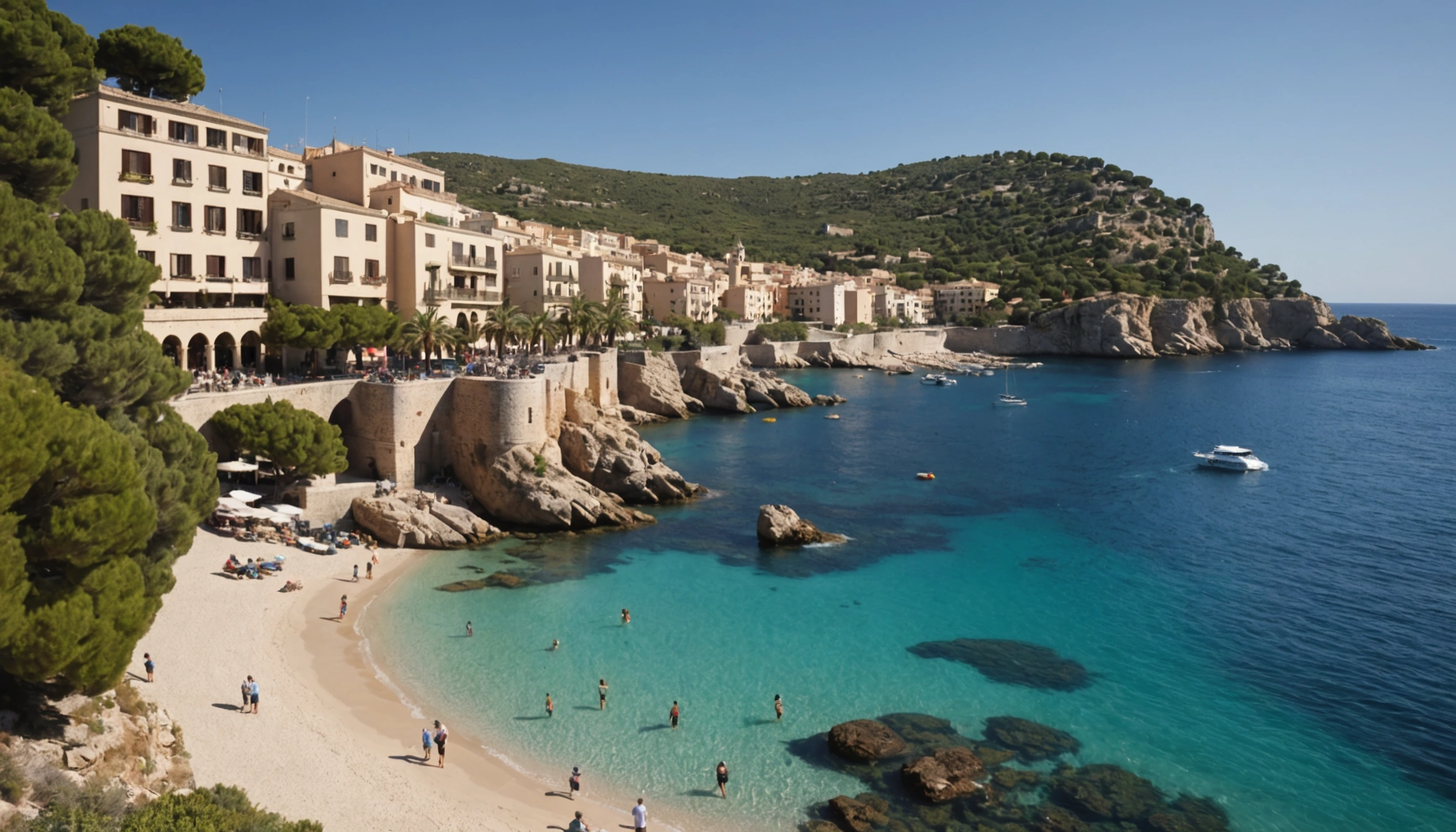Mallorca Balances Tourism Boom With Growing Pains in 2025

Mallorca, the largest of Spain's Balearic Islands, is bracing for another busy tourist season in 2025, but this year's influx comes with heightened scrutiny as the island grapples with the complex challenges of balancing economic prosperity with the needs of its residents and the preservation of its natural environment. While the tourism sector remains a vital economic engine, concerns about overtourism, rising costs for locals, and environmental strain are prompting both government action and community activism.
A Resilient Tourism Sector
Industry analysts predict a stable and robust tourism sector for Mallorca in 2025, mirroring the strong performance of 2024. The Mallorca Hotel Federation (FEHM) has refuted claims of widespread overtourism, emphasizing that high visitor numbers are concentrated in specific areas, not across the entire island. German tour operators, a crucial market for Mallorca, remain optimistic about the island's appeal, with pre-bookings aligning with last year's levels. This continued demand underscores Mallorca's enduring popularity as a leading summer destination. In 2022, Mallorca registered 44.4 million nights spent in tourist accommodation by international tourists.
The island's tourism sector is undeniably a major economic driver. In 2021, it accounted for approximately 45% of Mallorca's GDP, amounting to €30.32 billion, and supported around 35% of employment with over 200,000 jobs. The Balearic Islands experienced significant economic growth in 2023, largely fueled by the arrival of 14.4 million tourists who contributed a staggering €17.22 billion to the local economy. Palma has also been recognized by Lonely Planet as one of the top 10 cities to visit in 2025.
Growing Concerns About Overtourism
Despite the economic benefits, the surge in tourism has strained local resources and infrastructure. Residents are increasingly vocal about the negative impacts of overtourism, including environmental deterioration, infrastructure issues, overwhelmed public services, transport problems, gentrification, and a housing crisis.
One of the most pressing issues is the housing crisis, exacerbated by the proliferation of tourist flats. In some areas, the number of tourist vacancies nearly equals or even exceeds the local population. This trend limits available housing for locals, driving up rents and diminishing the quality of life for residents. The influx of visitors also strains environmental sustainability, leading to water shortages, pollution, and increased waste generation. In July 2024, 10,000 protesters demonstrated against mass tourism.
New Taxes and Regulations
In response to these challenges, the Balearic government is implementing a series of new taxes and regulations aimed at promoting sustainable tourism. These measures include:
- Increased Tourist Taxes: Higher accommodation levies will be applied during peak summer months, adding costs to hotel stays and short-term rentals. Travelers can expect to pay between €1 and €6 per night per person, depending on the type of accommodation and time of year.
- Cruise Ship Passenger Levies: Cruise passengers will pay between €2 and €6 per night, depending on the season, to encourage off-peak travel. Mallorca is expecting 541 large cruise ships carrying nearly 1.9 million tourists in 2025.
- Rental Vehicle Restrictions: A new rental car tax, up to €80 per rental, will be imposed based on vehicle emissions, encouraging tourists to use public transportation or opt for low-emission vehicles.
- Traffic Restrictions: Low-emission zones have been introduced in Palma and Soller, restricting access for vehicles without environmental stickers.
These measures aim to generate revenue for sustainable projects, manage visitor flows, and reduce the environmental impact of tourism. The "Sustainable Tourism Tax," introduced in 2016, has already proven successful, financing projects aimed at protecting the environment, restoring cultural heritage, and promoting ecotourism.
A Shift Towards Sustainability
Mallorca is actively promoting sustainable tourism practices to mitigate the negative impacts of mass tourism. This includes:
- Smart Tourism Technologies: Implementing digital tools to monitor visitor flows in real-time and optimize tourist distribution across the island.
- Sustainable Hotels and Accommodations: Encouraging hotels to adopt environmentally friendly practices, such as using solar energy, recycled water, and local produce.
- Ecotourism and Nature Conservation: Promoting activities that are in harmony with nature, such as hiking, diving, and snorkeling, while supporting organizations committed to protecting marine and coastal ecosystems.
- Agritourism: Providing visitors with authentic experiences of the local way of life and insights into the island's agricultural heritage.
The Mallorca Sustainable Tourism Observatory generates information to guide decisions in the public and private sectors, aiming to increase competitiveness and productivity while ensuring sustainability.
Community Pushback and Calls for Change
Despite government efforts, some residents and organizations believe more drastic action is needed. Seven organizations representing residents recently issued an open letter discouraging tourists from visiting the island, citing environmental deterioration, infrastructure issues, and a housing crisis. These groups argue that the island has been exploited to unimaginable limits and call for a reduction in tourist numbers during peak season.
Workers' unions are also demanding better pay and working conditions for those employed in the tourism sector, highlighting the disparity between rising hotel prices and stagnant wages.
Finding a Balance
Mallorca faces the complex challenge of preserving its economic prosperity while addressing the concerns of its residents and protecting its natural environment. The new taxes and regulations, along with the promotion of sustainable tourism practices, represent steps in the right direction. However, continued dialogue and collaboration between the government, tourism industry, residents, and visitors are crucial to finding a long-term balance.
Mallorca's future as a desirable tourist destination depends on its ability to manage the impacts of tourism responsibly. By embracing sustainability, respecting local communities, and preserving its natural beauty, Mallorca can ensure that tourism benefits both visitors and residents for generations to come.
Related Articles

Japan's Animation Industry Embraces AI to Combat Labor Shortages and Boost Creativity

